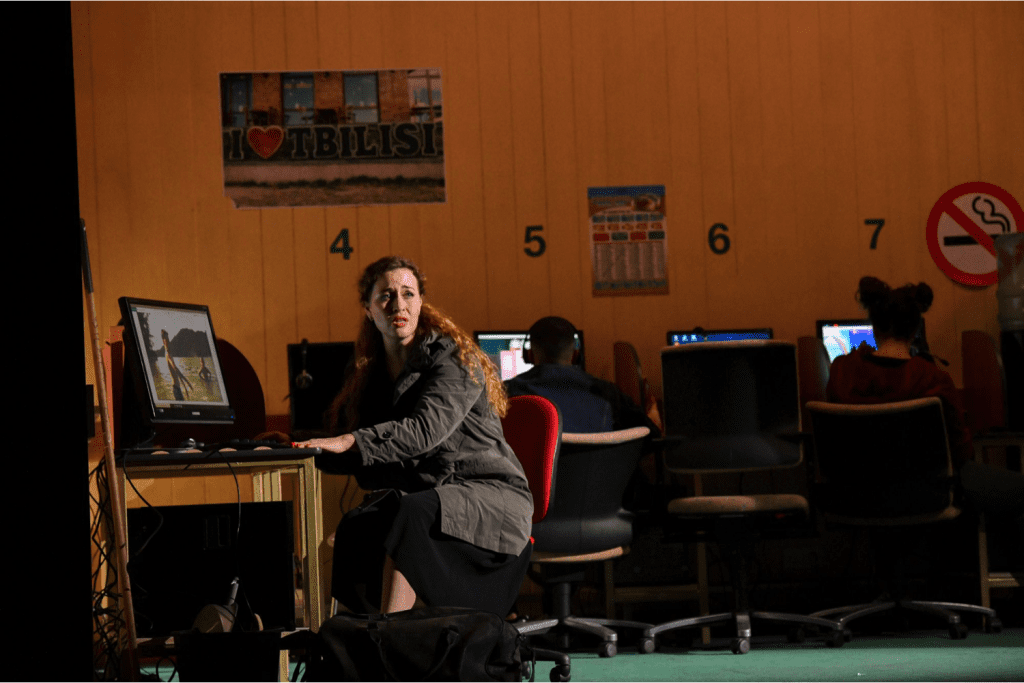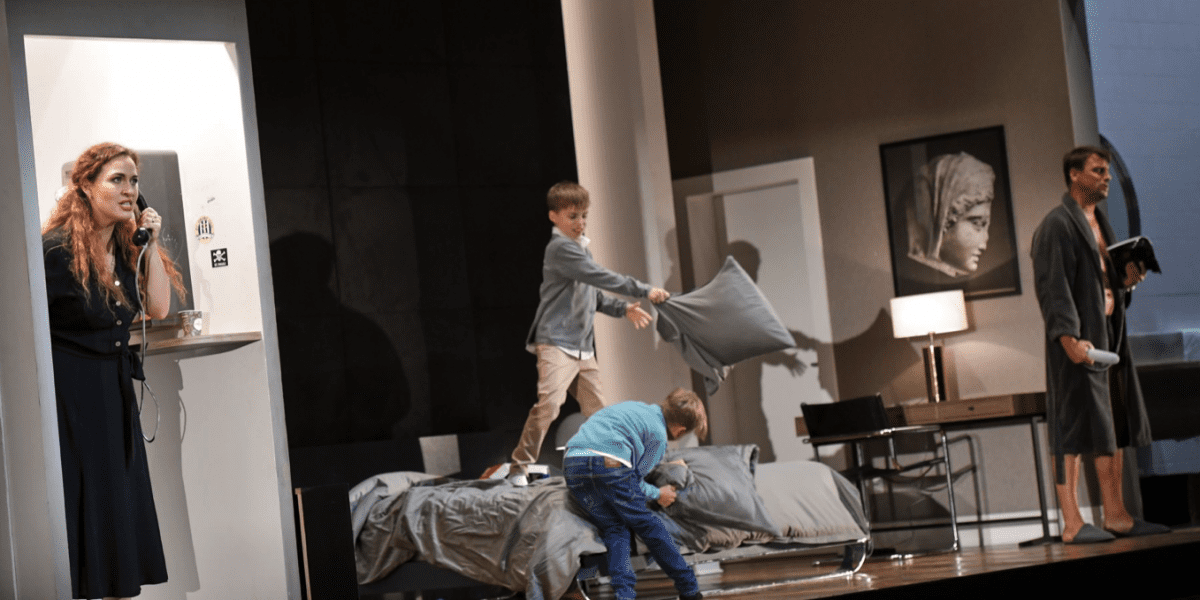Cutting edge and provocative, this year’s new production of Cherubini’s Médée performed at Salzburg Festspiele is notable for the originality of the direction and its clear political message. Composed originally for the opera-comique (where the practice was always to alternate spoken and sung parts), it was premiered on the 13th of March 1797 at the Théâtre Feydeau in Paris. It was subsequently translated into German, had the spoken parts substituted with sung recitatives composed by Franz Lachner and eventually this version was translated into Italian at the beginning of the 20th century. This is the version made famous by Maria Callas’ performances. The new production at Salzburg Festspiele dispenses with all of Lachner’s recitatives and the original spoken parts and only Cherubini’s music is performed; however, this production adds a contemporary twist to the original style with Médée’s offstage voice leaving several messages on Jason’s voicemail.

The Australian director Simon Stone has transposed the setting to contemporary Austria, eschewing any reference to ancient Greece. His Médée is a desperate woman living in a contemporary situation, a divorcee living in a foreign country. She is furious with her ex-husband Jason who has abandoned her and taken custody of their two sons who are with him. After reading the news of the wedding of Jason and Dircé, she tries in vain to reach Jason over the phone and eventually she decides to go and visit him. At the border control she experiences racial discrimination, which is already an element in Euripide’s tragedy, an element that even in the original play clearly resonates with the current migrants’ crisis. It is only by begging the ruler Creon, Dircé’s father, who is rightly worried about her presence, that she is allowed to remain in Austria. The deal is made that she can only stay for one day, but that gives her enough time to carry out her plan of raw revenge against Jason.
This production expands on the concept of opera being a Gesamtkunstwerk by projecting movielike videos throughout, which in flashback retrace the most important moments of the past of the characters; it also uses live cameras. The stage is often divided into separate scenes so that it can show how the unfolding of the plot affects each of the different characters simultaneously. This has the impact of also increasing the sense of isolation and non-communication between the characters. It has to be said that, as the opera progressed, the plot diverged so much from the myth or traditional versions of the tale that it seemed we were actually watching a performance of Simon Stone’s Médée accompanied by Cherubuni’s music, not so much an interpretation of the original opera. This approach culminated in a finale, that for me was actually in bad taste, at a petrol station, where an enraged Médée sets her car to fire with her two children inside it.
The psychology of the characterizations in Stone’s approach nevertheless remains faithful to the original. The worried Dircé is a victim of her fiancé’s ambitions and Médée’s rage. Intensely interpreted here by the soprano Rosa Feola she lacked, at times, the lightness required for the role. The vain and pompous Jason is interpreted here by the tenor Pavel Cernoch who possesses the right voice for the classicist repertoire and a great stage presence. Vitalij Kowaljow’s Creon is a credible loving father and at the same time a ruthless ruler. However, it is Elena Stikhina, in the title role, that amazed everyone with the sheer strength of her interpretation both vocally and dramatically. She convincingly portrays a wounded woman who oscillates between tender love, jealousy, desperation and uncontrollable rage. As in Euripides, this Médée is a savage force for revenge but also a victim of injustice and despite the crudity of her crimes she can still inspire empathy. Finally, the conductor Thomas Hengelbrock and the exceptional Wiener Philarmoniker orchestra brought to life the dense and rich music of Cherubini’s score as well as the changing moods of the story as it progressed along its course.
This Médée, despite its crude realism, was well received by the public and it is an experience worth trying for its innovative and thought provoking take on an old subject.

